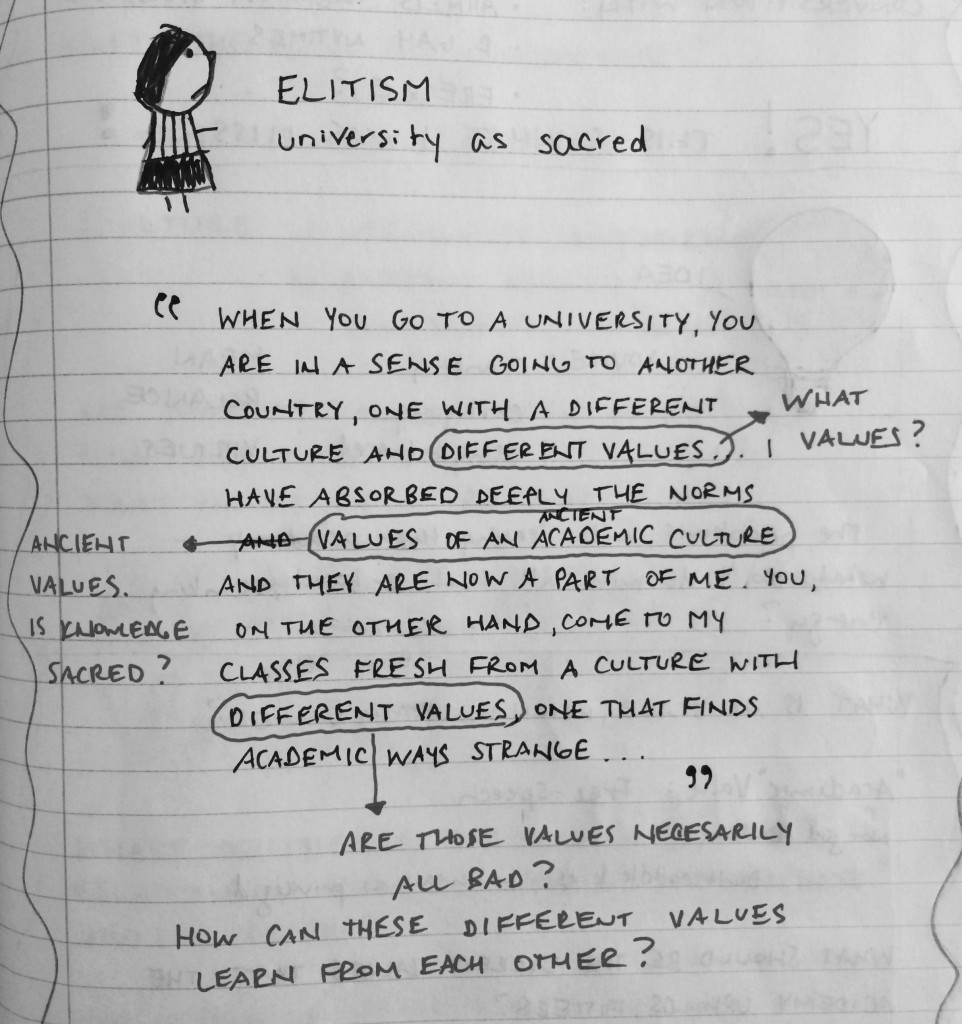Since my last processing post on November 17th, I’ve been continuing to work on my new book project. I didn’t post here because I was stuck, trying to work through some anger I had with two online articles I was reading about professors and academic values. I filled up about 14 pages in my green notebook with my notes, but I devoted (wasted?) all of my energy on crafting a blog post for my Trouble blog, which I finally managed to complete yesterday: Beside/s: What’s the Point of a Professor?
Here’s one of my pages from the notebook. It includes my dissecting of a passage from one of the online articles, Keith M. Parsons’ Message to my Freshman Students:
I’m not done working with some of the questions that this article, and the others that I blogged about, raised for me and this writing project. Hopefully, my future processing/writing won’t get me as stuck as I was this past week.
Right before I got stuck thinking about what a professor is and attempting to move beyond the answer that I feared was the only one, an arrogant asshole, I found a book that I’m really excited to analyze for this project: Imaginary Syllabi.
As I began to skim through the book I got excited, especially after reading Jane Sprague’s description of the book’s purpose:
A book-length project of contributions by multiple authors that aims to collect writings which investigate, uncover, examine, complicate, question, provoke, and otherwise (essentially) challenge pedagogical strategies pursuant to the work of teaching writing and other disciplines. This book includes writings which dream up, concoct and explore utopian, fabulist, fantasy syllabi for potential imagined or real classroom endeavors. Educational projects undertaken and employed (deployed) in and outside of official as well as mongrel “schools.” Official spaces might harbor (or cultivate) the mongrel and vice versa (8).
Jane Sprague, ed.
Cool! Maybe I want to create some of my own un/imagined courses? Dream classes that I wouldn’t be able to teach within traditional academic spaces?
In addition to looking through Imaginary Syllabi, I also started reading Rebecca Solnit’s Encyclopedia of Trouble and Spaciousness. The varied (spacious) hodge-podge of non-fiction writing forms included in this book inspires me. I’m looking forward to reading/analyzing what Solnit has included and how/why.
